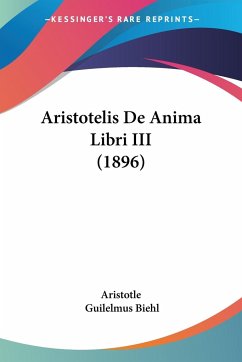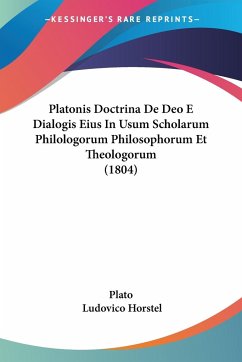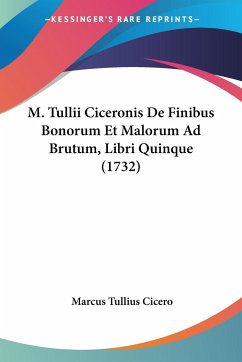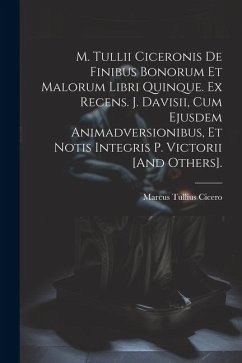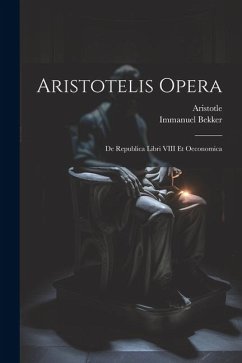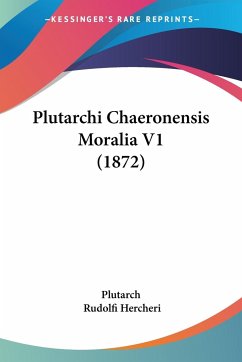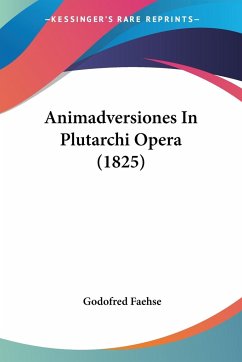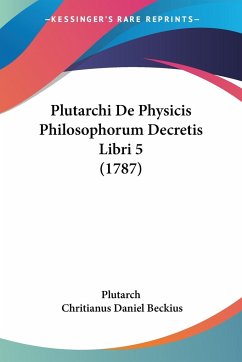
Plutarchi De Physicis Philosophorum Decretis Libri 5 (1787)
Versandkostenfrei!
Versandfertig in 1-2 Wochen
32,99 €
inkl. MwSt.

PAYBACK Punkte
16 °P sammeln!
Plutarchi De Physicis Philosophorum Decretis Libri 5 est opus magnum, quod auctore Plutarcho scriptum est. In hoc libro, Plutarchus decretis physicorum philosophorum, qui in Graecia antiqua floruerunt, tractat. Quinque libri in hoc opere continentur, qui omnes de philosophia physica agunt. In his libris, Plutarchus de principiis et causis rerum naturalium, de motu, de loco, de tempore, de materia, de forma, de virtute et de aliis rebus physicae philosophiae tractat. Hoc opus est valde utile, quia Plutarchus non solum philosophorum opiniones exponit, sed etiam eas comparat et criticat. Itaque, ...
Plutarchi De Physicis Philosophorum Decretis Libri 5 est opus magnum, quod auctore Plutarcho scriptum est. In hoc libro, Plutarchus decretis physicorum philosophorum, qui in Graecia antiqua floruerunt, tractat. Quinque libri in hoc opere continentur, qui omnes de philosophia physica agunt. In his libris, Plutarchus de principiis et causis rerum naturalium, de motu, de loco, de tempore, de materia, de forma, de virtute et de aliis rebus physicae philosophiae tractat. Hoc opus est valde utile, quia Plutarchus non solum philosophorum opiniones exponit, sed etiam eas comparat et criticat. Itaque, qui philosophiam physicae antiquae cognoscere velint, hoc opus legere debent. Editio huius libri anno 1787 facta est.This Book Is In Latin.This scarce antiquarian book is a facsimile reprint of the old original and may contain some imperfections such as library marks and notations. Because we believe this work is culturally important, we have made it available as part of our commitment for protecting, preserving, and promoting the world's literature in affordable, high quality, modern editions, that are true to their original work.



